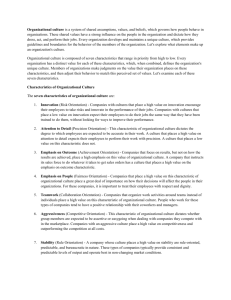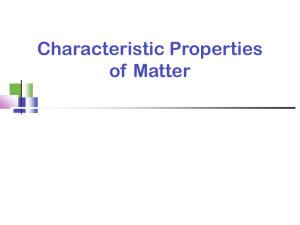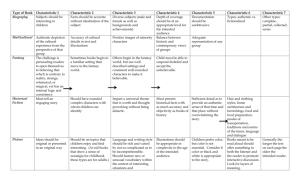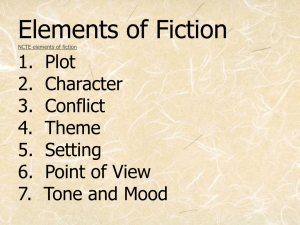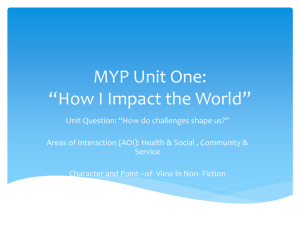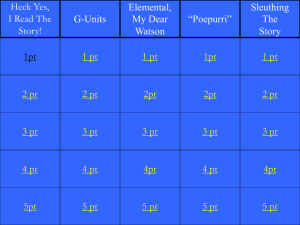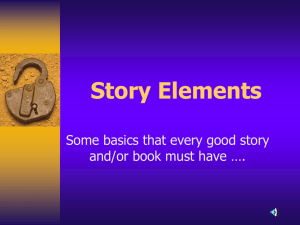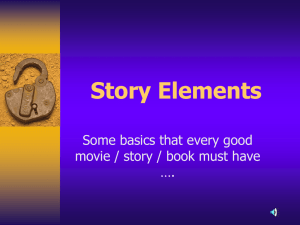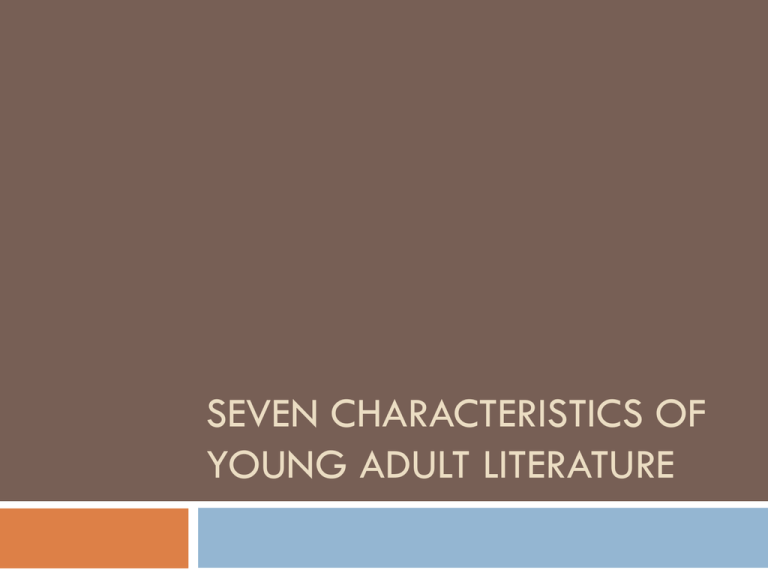
SEVEN CHARACTERISTICS OF
YOUNG ADULT LITERATURE
Seven Characteristics of Young Adult
Literature.
Characteristic #1: Young Adult Authors Write from the Viewpoint of Young People.
Young adult literature is often written in the first person.
In a young adult book that uses the first person narrative, the narrator usually begins the story as an unreliable source.
The narrator grows with the story and by the end of the book the narrator becomes a reliable sources.
The narrator moves from an unreliable source to a reliable source through their experiences in the story that lead to
change in their character.
The YA reader is allowed to live out life changing experiences safely through the narrator’s voice.
A young adult narrator may tell the story of another who is not a young adult.
A problem that may arise out of this characteristic is that when a young adult narrates a story it is deemed YA regardless
of whether the story being told is a young adult or adult story.
Characteristics of Young Adult Literature
Characteristic #2: “Please, Mother, I Want the Credit!”
The young adult protagonists solve problems for themselves
without the help of their parents.
Elderly relatives, mentors or friends may provide assistance
to young adult protagonist.
Young adult protagonist attempt to learn about an unknown
parent.
Characteristics of Young Adult Literature
Characteristic #3: Young Adult Literature is Fast Paced.
YA fiction may present characters that are a reflection of
MTV or the Internet over role model characters for young
adult audiences.
YA fiction offers stories that are short and powerful as well
as longer stories with more complex plots.
This characteristic may present a problem as young adults
will be left with fewer characters who are “role models.”
Characteristics of Young Adult Literature
Characteristic #4: Young Adult Literature Includes a
Variety of Genres and Subjects.
YA literature offers variety of genres (science
fiction, romance, fantasy, historical fiction, ect.)
Young adult literature includes all forms of literature
including: nonfiction, poetry, biography, graphic
novels ect.
Characteristics of Young Adult Literature
Characteristic #5: The Body of Work Includes Stories about
characters from Many Different Ethnic and Cultural Groups.
Themes that allow young adult readers and honest view of a
diverse set of situations and issues from both a local and
global perspective.
Problems could arise as stories and situations from different
ethnic and cultural groups may be considered taboo when
viewed by a different culture or ethnic group.
Characteristics of Young Adult Literature
Characteristic #6: Young Adult Books Are Basically Optimistic,
with Characters Making Worthy Accomplishments.
Young adult protagonists are often smarter than the adults
in the story.
Young adult stories feature protagonists who will be
respected by the young adult audience.
A problem from this characteristic may arise as young adult
protagonist who seems to know it all may offend adults.
Characteristics of Young Adult Literature
Characteristic #7: Successful Young Adult Novels Deal with Emotions
That Are Important to Young Adults.
Truthfully portrays emotions that are important to young adults.
Themes include becoming self-aware, achieving self-identity and
being responsible form one’s self.
Reflect young adult emotional struggles.
Problems may arise from this characteristic as stories may deal
with mature language and content including: profanity, sexual
content, violence, drug use, suicide, teen pregnancy, and abuse.


